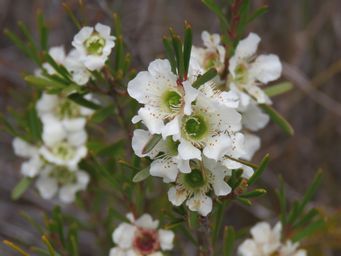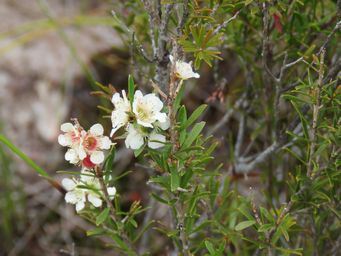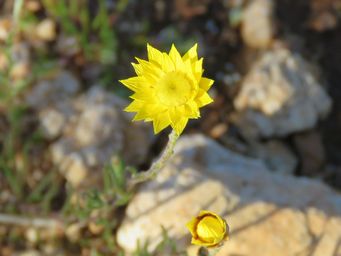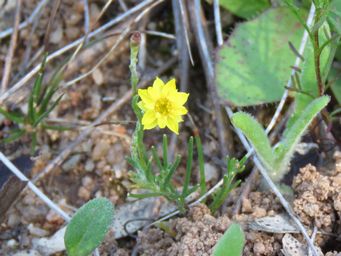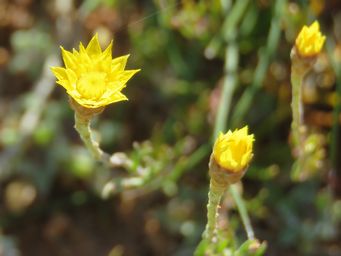Australia So Much to See
Purple, pea flower, along upright stem, holly-like prickly leaves which can vary from distinct to almost no serrations. Seed pods forming at right.
Winter
Bridgetown, and found throughout the South West Region from Perth to Albany
Purple, pea flowers along a straggly stem with elongated leaves on a small shrub. Different plants can have variations in foliage as seen at left
Bridgetown, and found throughout the South West and Great Southern Regions extending along the south coast to east of Esperance, Perth region and further north towards Geraldton.
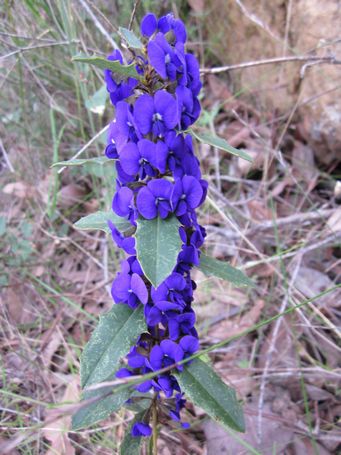
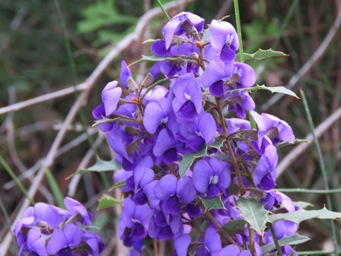
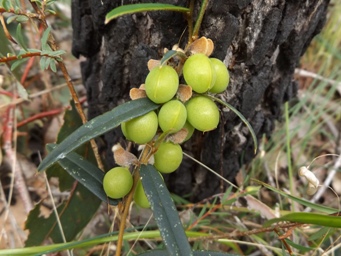
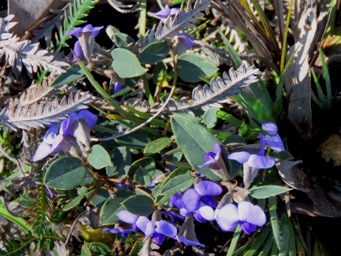
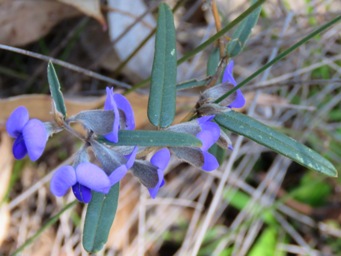
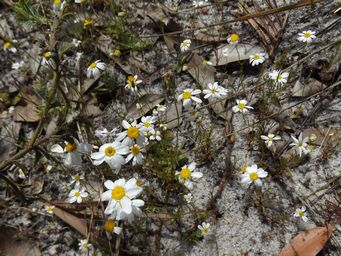
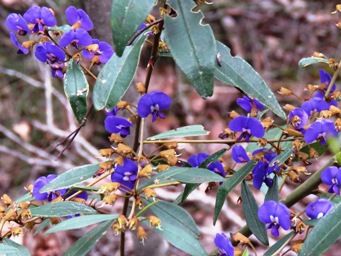
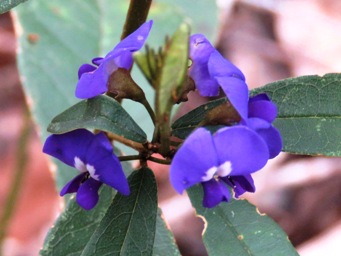
Purple pea flower with white 'eyes', on an upright shrub. Elongated leaves
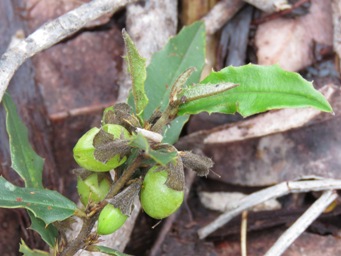
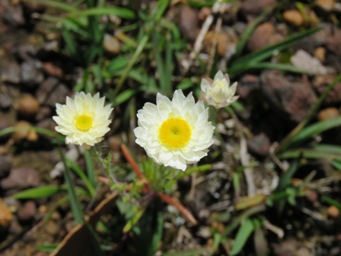
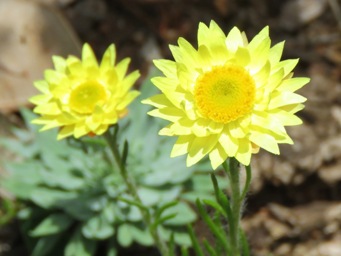
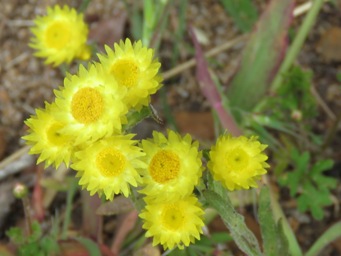
Homalospermum firmum (has been known as Leptospermum firmum)
This is the only species in the Homalospermum genus.
White or sometimes
pink tinged flowers are up to two centimetres across, with a green centre which turns red after being fertilised. Flowers have
thirty to thirty-five stamens. Elongated leaves of up to three centimetres widen towards the top before tapering to a slight
point. Shrubs may grow to four or five metres in height.
December
Northcliffe, lower South West region, Western Australia. They
are mostly found in the near coastal southernmost reaches of the South West and Great Southern regions, and can also be found in locations
from Gingin in the Wheatbelt, Perth, and the western South West. Favours swamps and margins of wetlands.
Hyalosperma glutinosum subsp glutinosum (formerly known as Helipterum hyalospermum), Golden Sunray.
A small bright yellow everlasting
daisy with pointed tipped petals and a flower with a bulbous base. Foliage consists of cylindrical leaves up the stems, with
one flower per stem.
August
